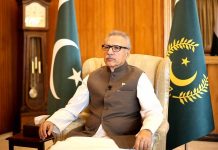Zuraira has lived a life of extreme struggle since childhood. Born in a family that fought to make ends meet in the small town of Sundus Village in Skardu Gilgit, Zuraira never stepped a foot in school despite always hoping to pursue education and lead an independent life. Instead, she continued to work at home and help her mother run the house and raise younger siblings. Very often, Zurara would wonder whether she would ever be able to lead the life of her dreams – one where she was leading her life with financial independence and making her own decisions.
At the age of 16, when girls should be opting between medicine and liberal arts and thinking about their future careers, Zuraira got married. Her husband was still a High School student. Life became even harder because her husband was a student and not earning and she compromised to live with the bare minimum. In the years that followed, Zuraira gave birth to five children; three daughters and two sons. Even though her husband began earning, it wasn’t enough to run a house with five children.
In an attempt to ensure there is food on the table for her family, she began planting vegetables in a small farmland that her family owned. “When I began cultivating vegetables, selling them to make a living was a far fetched idea. I just wanted to ensure my family always had food to eat”, explains Zuraira.
Gilgit Baltistan is a difficult area for plantation due to its harsh weather and therefore Zuraira never imagined that she could ever make a living out of it until her children told her about USAID’s support for provision of solar greenhouses for vegetable farming through regulated climatic conditions. Zuraira’s family encouraged her to apply for the opportunity to improve their farm productivity. After successful submission of her application, Zuraira was excited to learn that she had qualified for her farm to be upgraded with “solar greenhouse technology”.
This was a life changing moment in Zuraira’s life. She may not have realised it back then but she surely admits how this support has changed her life now. The greenhouse enabled her to triple her production and grow off-season vegetables during harsh weather conditions as well. In the winter, the temperature in Gilgit Baltistan drops to -17°C, which makes cultivation impossible in open fields. In this situation, the USAID supported solar greenhouse helps maintaining suitable temperature for cultivating off-season vegetables and hence, in increasing production.

USAID Satpara Development Project not only supported the provision of a solar greenhouse on Zuraira’s farm but also provided her with the technical cultivation advice required to use such a facility. The assistance provided her with a cropping calendar to optimize the utility of the greenhouse.
USAID Satpara Development Project has helped establish 353 passive solar greenhouses, which not only help local vegetable growers to optimize their production capacity, but also provide them a crucial cushion of time to prolong their farming season. In the off-season from October 2016 to March 2017, USAID-supported farmers were able to produce around 90, 000 kilograms of vegetables, of which 80 percent was sold in the local market.
Zuraira says that, “the USAID intervention has helped me manage our farming more efficiently”. She is able to turn it into a business. She has decreased yield wastage, is producing better quality vegetables, even during off-season that are sold at better prices.
“I now sell vegetables from my own farm all year round with an average annual earning of around PKR 110,000.” Zuraira runs her farming business independently and spends her income to pay the school fees of her children, personal and domestic utilities, buy clothes and to enhance production of vegetables.
An independent woman who has taken up the charge of her life, Zuraira is a firm believer of the fact that women must pursue education, entrepreneurship and employment opportunities to empower themselves. She has empowered her daughters through education and aspired them to lead independent lives. One of them has a Masters and is now teaching at a private school, another is in the Army and the third pursuing higher education at university level.
Zuraira is more than just a success story – she is a sign of hope for women in Gilgit Baltistan, she is a symbol of women empowerment and a testament of hard work. Having benefited from the solar greenhouse, Zuraira is now helping many other women learn and apply the modern farming techniques to improve their produce and earn higher profits – leading independent and prosperous lives.




.jpg)









